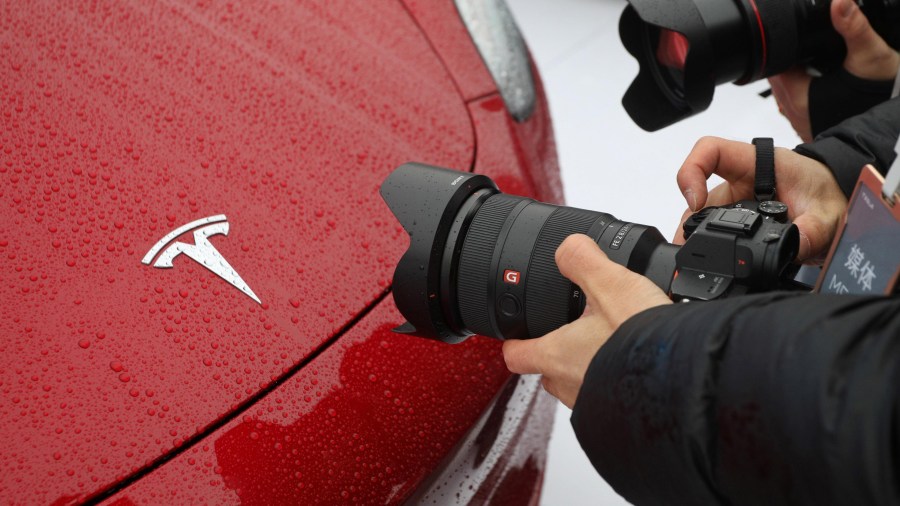EV sales might accelerate in 2020. Maybe.

A new decade is almost upon us, which means this week we’re going to be talking about what to expect from the tech world in 2020.
Today, let’s kick the tires — pun intended — on the transportation tech that seems prepared to go big in 2020, electric vehicles. This tech has been around for a while, but at least here in the U.S., the EV market hasn’t had its boom and there hasn’t been much mainstream competition to Tesla.
But, this could be the year that EVs finally go big-time. I spoke with Marketplace’s Jack Stewart, who covers transportation, and who is also Marketplace Tech’s favorite EV enthusiast. I asked him whether 2020 will be the year of the electric car. The following is an edited version of our conversation.
Jack Stewart: [This year] just felt like a really big year for electric vehicles. We had Ford, for example, showing off its latest Mustang Mach-E. Just the fact that this big, mainstream manufacturer made their big, splashy unveil at the LA Auto Show, and it was an electric car, and, it borrowed that big muscle car brand, which is really going to annoy a few muscle car fans — all that just really made me feel that — maybe — this is people starting to take this really seriously. This Tesla threat is now rearing its head in a way that mainstream manufacturers are taking notice of. EV sales are still hovering around the 2% mark of the market in the U.S., so not a lot, and they’re not going to tip up massively from that in 2020, but I think we will see some momentum in the increased direction.

Molly Wood: What are the missing pieces to go from tipping point to mainstream?
Stewart: To go mainstream, I guess these cars have to be suitable for everybody. To get electric vehicles into everybody’s driveway, you have to build electric vehicles that people want to buy and want to drive. But, of course, everybody wants the option to use their vehicle however they want to use it. That means going on a road trip twice a year, so they’ve got to be capable of doing that. There do need to be networks for people to charge. That’s one of the really clever things that Tesla did, and perhaps one of the unappreciated things about their company, is they built out a network of supercharges — these high-speed battery chargers that can give you up to 80% of your battery back in 40 minutes, 30 minutes, sometimes even. They’ve built those out across the country, but they’re only for Tesla drivers to use, and that makes those cars that much more compelling.
Wood: We’re mostly talking EVs, and we’re not talking that much about autonomous cars. Do you think that the reverse tipping point happened in 2019, where we realize that technology is way harder than we thought, we’re just chugging along somewhat slowly?
Stewart: I think you’re absolutely right. We’ve reached the trough of disillusionment point of the hype cycle that people talk about when they talk about these technology companies, particularly coming out of Silicon Valley. Just realizing this is a much harder problem to crack than they thought it was. They’re still optimistic they will crack it, but we’re just hearing a lot now about companies that are having to form partnerships for investments into autonomous vehicles because it’s so expensive to go [into] it alone, and it’s such a big risk to go it alone. That is all going to take just a little bit longer.
The future of this podcast starts with you.
Every day, the “Marketplace Tech” team demystifies the digital economy with stories that explore more than just Big Tech. We’re committed to covering topics that matter to you and the world around us, diving deep into how technology intersects with climate change, inequity, and disinformation.
As part of a nonprofit newsroom, we’re counting on listeners like you to keep this public service paywall-free and available to all.
Support “Marketplace Tech” in any amount today and become a partner in our mission.













